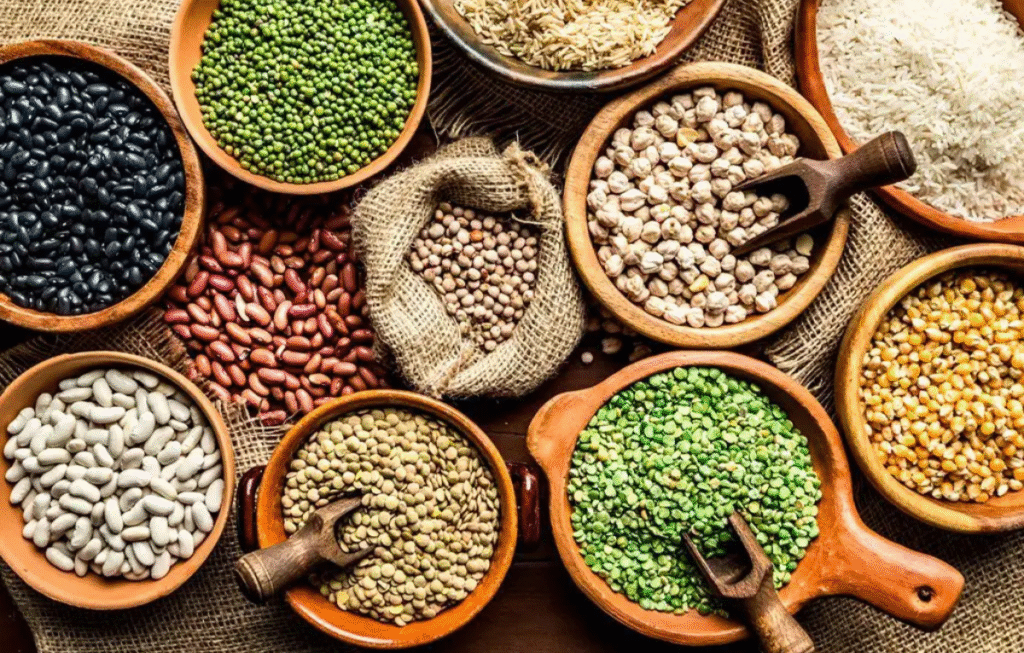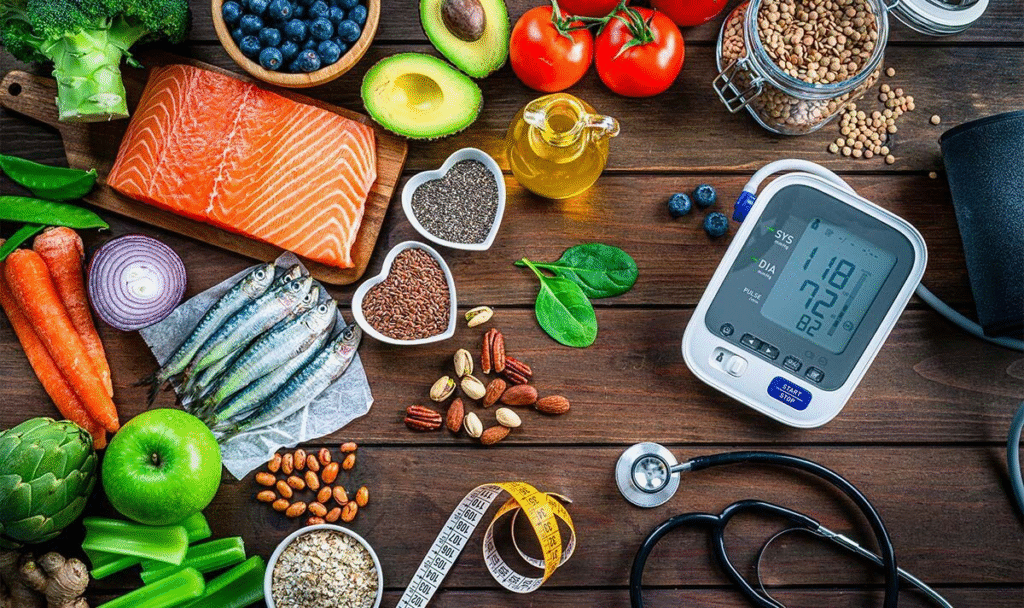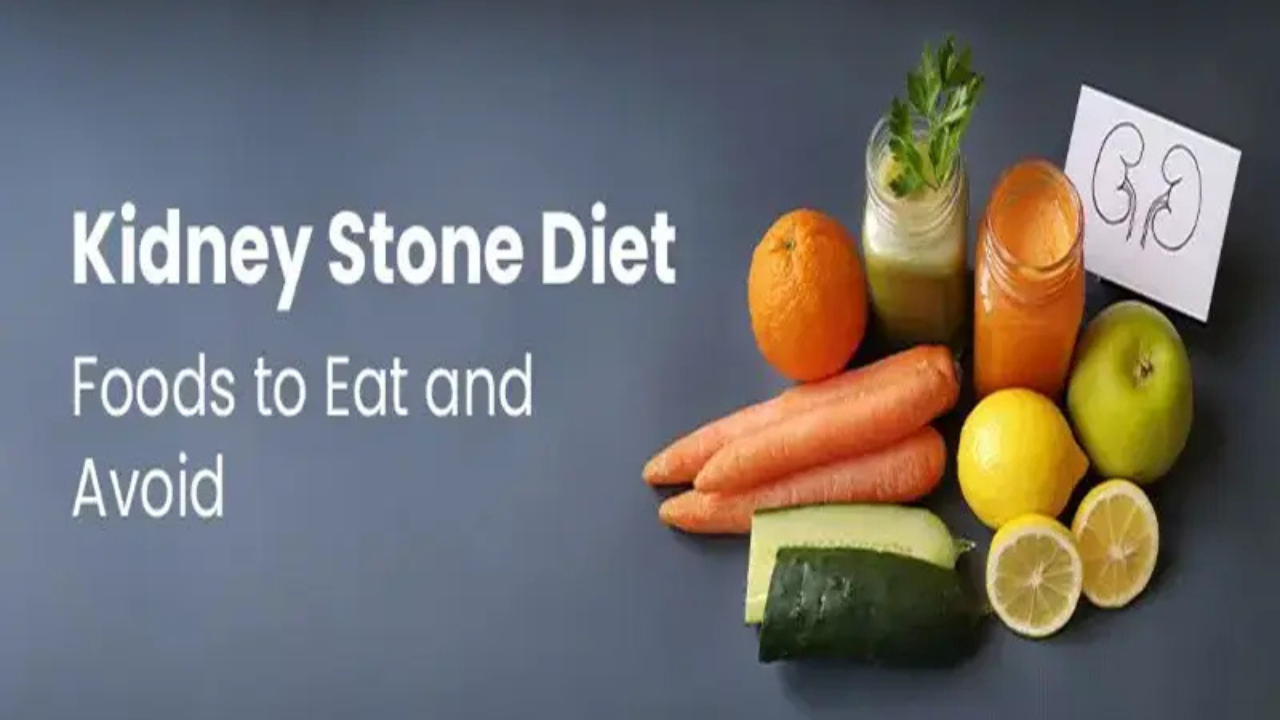Most people have had an experience with kidney stones. Up to 50% of people may have a recurrence of symptoms in 10 years. Pain comes with some advantages; the diet you follow helps. By avoiding certain foods and preferring others, one minimizes risk for future stone formation and maintains kidney health.
Understanding Kidney Stones
Before discussing the dietary components that may predispose one to the development of various forms of kidney stones, it is important to first understand the types and formation of kidney stones.
Kidney stones are formed in the urine, and to crystallize into stone form, these dehydrated stones should be concentrated with calcium, oxalate, uric acid, and cystine.
There are four major types of kidney stones:
- Most prevalent are those of calcium oxalate.
- Uric acid stones arise from excess dietary purine.
- Struvite stones develop in response to some kind of infection.
- Cystine stones are rare and develop genetically.
There is a combination of factors responsible for their formation, including genetic factors, dietary habits, hydration, and lifestyle.
Kidney stones diet: Foods to avoid
Assuredly, choosing the right types of food can save one from renal stone pain, pretty much making the torture repeat every time.
High oxalate foods:

The predominant oxalates include spinach, beets, nuts, and chocolate, which may pair with calcium in the kidneys to form stones. If you have previously suffered the pain of having calcium oxalate stones, it is worthwhile to think seriously about reducing the consumption of such foods. Choose more kidney-friendly low-oxalate fruits and vegetables such as cucumber, watermelon, grapes, cauliflower, and bananas.
Salty and processed foods:
Excess salt does not just increase blood pressure-it, in fact, also lavishes calcium into the urine, thus facilitating the formation of kidney stones. Processed foods, canned soup, packaged snacks, and fast foods fill the list of poor ones. The better option would be fresh, home-cooked dishes flavored with herbs, spices, or lemon juice that are not only tasty but good for the kidneys.
Sugary drinks:
Sugary sodas and jugs marketed as fruit juices do more harm than good to the kidneys. They are agents of sugar excess in your body, causing the loss of calcium by the kidneys. Sodas also contain phosphoric acid, which helps stone formation. Water is, however, the best drink.

Sipping on sugar-free sparkling water or naturally flavored lemon or lime-infused water is refreshing.
Animal protein:
Red meat, organ meat, and shellfish are delicious but purine-rich, increasing uric acid and stone formation. Too much animal protein also acidifies urine, increasing stone risk. A better option is to consume lentils, beans, and chickpeas alongside moderate amounts of chicken or fish, together with an abundance of fruits and vegetables.
Colas and energy drinks:
The other culprits of kidney stone formation due to heavy phosphoric acid are colas. Besides, excessive caffeine in either colas or energy drinks dehydrates you and increases the chances of stones by concentrating minerals in urine. Safe alternatives include plain water, herbal teas, or moderate coffee to boost you whenever needed.

Foods high in Purine and high in Vitamin C
Foods such as sardines, anchovies, organ meats, and beer are loaded with purines, raising uric acid levels that might lead to the formation of uric acid stones. High-dose vitamin C supplements also elevate oxalate levels in the body. Enjoy natural vitamin C from fruits such as oranges, strawberries, and bell peppers, emphasizing plant proteins with some animal protein.
What to Eat Instead: Kidney-Friendly Foods
Do not forget to bring in some kidney-friendly foods into your metabolic scheme, as avoiding huge no-no foods is also very important.
1. Citrus Fruits
- Lemon, lime, and orange juice citric fruits are primary citrate blockers that convert kidney stones by binding calcium in urine.
- Best Choices: Lemon water; fresh orange juice; grapefruit slices.
2. High-Water Foods
- Water dilutes urine and prevents stone formation. Ingestion of high-water foods thus serves this function.
- Best Choices: Cucumber; watermelon; strawberry; zucchini; lettuce.
3. Whole Grains

- Whole grains are good sources of fiber that assist in calcium absorption and hence minimize the risk of stone formation.
- Best Choices: Brown rice; oats; quinoa; barley.
4. Low-Oxalate Vegetables
- Vegetables are important for general health, but the low-oxalate vegetable option is paramount in stone prevention.
- Best Choices: Cabbage; cauliflower; peas; zucchini.
5. Dairy in Moderation
- Calcium in low-fat dairy actually binds with oxalate in the gut and so prevents kidney stone formation.
- Best Choices: Yogurt; skim milk; cottage cheese.
6. Foods Rich in Magnesium
- Magnesium prevents the binding of oxalate with calcium; thus, it prevents stones.
- Best Choices: Banana; avocado; pumpkin seeds; whole grains.

Lifestyle Tips to Prevent Kidney Stones
- Drink Hydration: Drink eight to ten glasses of water daily.
- Balance Protein Consumption: Do not eliminate, but reduce undesirable foods high in purine.
- Watch Your Weight: Obese people are susceptible to developing stones.
- Limit Supplements: Stay away from frivolous calcium and vitamin C supplements.
- Exercise Regularly: Exercise enhances metabolism and kidney health.
Conclusion
Yes, not only do kidney stones cause excruciating pain, but they also adversely affect one’s quality of life. The good part is that dietary modifications can be employed as good and efficient modalities of treatment in the prevention of this menace. One has to avoid foods high in oxalate, limit animal proteins, sodium, sugars, and any form of supplementation while little or no caffeine or alcohol is acceptable, as these simply lower the risk; while hydrating food, citrus fruits, whole grains, and magnesium-rich foods will promote and build kidney health. So, preventing a disease becomes all about conscious food choices knitted with a deep commitment to hydration and balance.
Your kidneys are working double time, filtering away the waste and toxins from your body, hence, it is only mindful eating that will give your kidneys the respect they deserve.
FAQs:
What foods are the biggest triggers for kidney stones?
High-oxalate foods like spinach, beets, and nuts, along with excess salt, red meat, and sugary drinks, increase kidney stone risk.
Can drinking more water prevent kidney stones?
Yes, staying well-hydrated dilutes urine, lowers mineral concentration, and significantly reduces the chances of kidney stone formation.
Is calcium harmful for kidney stones?
Calcium from food is protective, but excessive calcium supplements may increase stone risk. Always consult your doctor before supplementation.
Which fruits are best for preventing kidney stones?
Citrus fruits like lemons, oranges, and limes are excellent because they increase urinary citrate, a natural stone-preventing compound.
Hi, I’m veda, a professional health content writer and passionate wellness advocate at HealthTipsIndia.com
. With years of experience in writing evidence-based, reader-friendly articles, I specialize in creating content that empowers people to live healthier, more balanced lives. Whether it’s nutrition, fitness, natural remedies, or preventive healthcare, I translate complex medical concepts into actionable tips tailored for the Indian lifestyle. My goal? To make trustworthy health information accessible to everyone—one article at a time.

